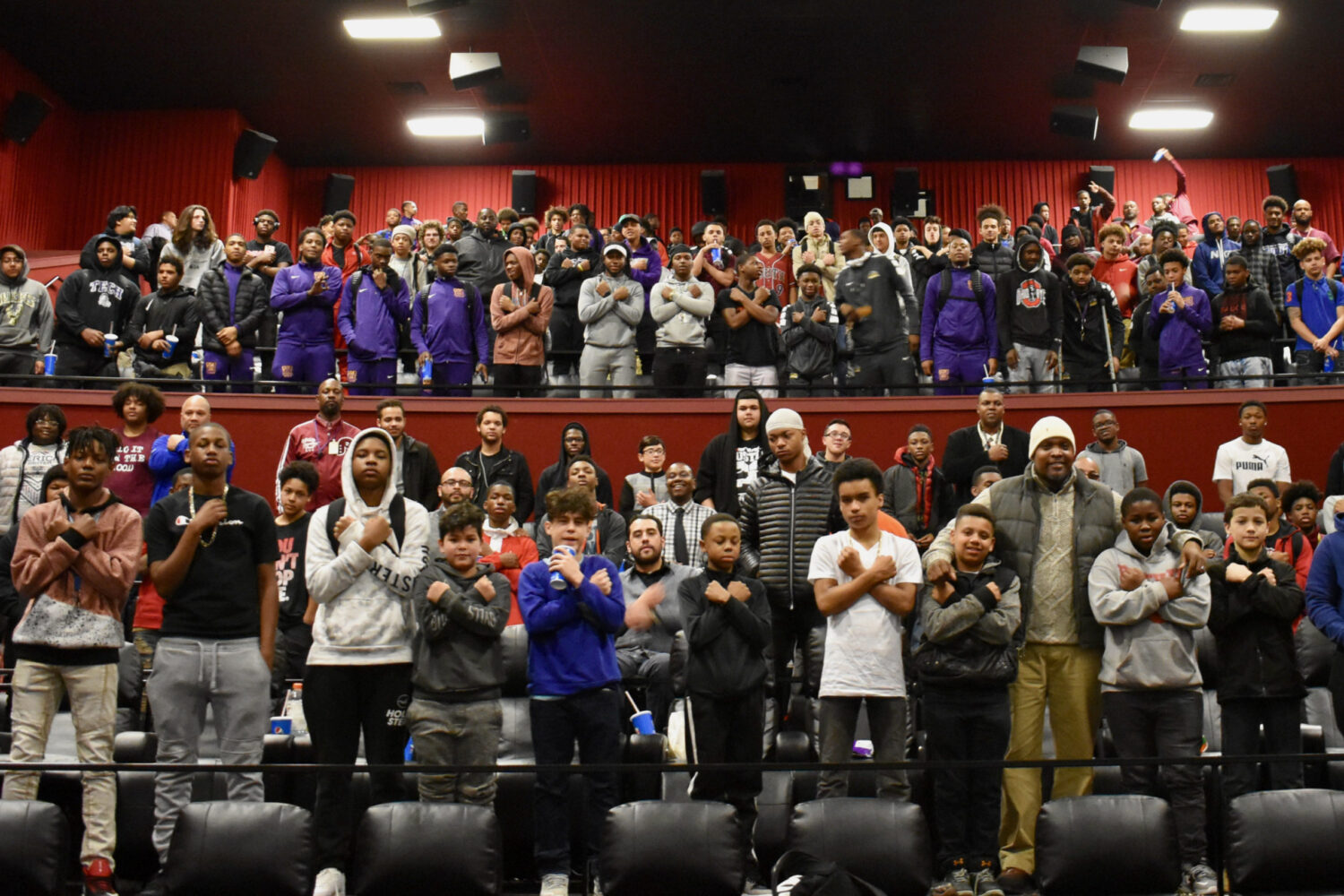Contest Allows Students to Pitch Ideas on Improving Educational Outcomes for Black Males
Share
Explore Our Galleries
Breaking News!
Today's news and culture by Black and other reporters in the Black and mainstream media.
Ways to Support ABHM?
This story was originally published by Milwaukee Neighborhood News Service, where you can find other stories reporting on fifteen city neighborhoods in Milwaukee. Visit milwaukeenns.org.
By Sam Woods, Milwaukee Courier
…Milwaukee Succeeds, a partnership of educational leaders across government, nonprofit and private sectors, has launched a pitch competition called “Design Your Future.”
The contest seeks to improve the educational outcomes of young Black males in Milwaukee. Once five proposals are selected in January, the ideas will be implemented next school year after being developed over the spring and summer.
The winners will receive two different payments: a $10,000 grant to spend on making the idea a reality, as well as a $2,500 stipend for each individual youth working on the proposal….
Ideas can be submitted by individuals or groups and can be presented in a written, visual or audio format. …

Design Your Future” is built on the outreach work of groups like MPS’ Department of Black and Latino Male Achievement, or BLMA. Here participants of BLMA pose after a screening of “Black Panther” in 2018. (Photo provided by MPS)
Danae Davis, executive director of Milwaukee Succeeds, said originally the competition was going to include ideas for improving outcomes for Black and brown students. Milwaukee Succeeds decided to focus solely on Black men because data on graduation rates and attendance suggests that the demographic is most in need of ideas for improving outcomes.
“We are taking an approach rooted in ‘targeted universalism,’ which is basically the idea that if you focus on those most marginalized you end up benefiting everyone,” Davis said. As an example, she cited Angela Glover Blackwell’s observation that alterations to sidewalks meant to benefit people in wheelchairs also helped people using strollers and bicyclists as well….
“We want to center marginalized and oppressed voices, and that means putting the youth we serve in positions where their ideas guide our work,” … said [David Castillo, planning assistant at Milwaukee Public Schools’ Department of Black and Latino Male Achievement.]
Castillo said the ability to pay young people for their ideas and time is radical. “Too often money goes to gatekeepers who come up with ideas on behalf of youth,” he said. “So money and resources going directly to youth in itself is huge.”
Read the full article here.
Learn more about the history of the education of black children and how to achieve racial repair and reconciliation.
More Breaking News here
Comments Are Welcome
Note: We moderate submissions in order to create a space for meaningful dialogue, a space where museum visitors – adults and youth –– can exchange informed, thoughtful, and relevant comments that add value to our exhibits.
Racial slurs, personal attacks, obscenity, profanity, and SHOUTING do not meet the above standard. Such comments are posted in the exhibit Hateful Speech. Commercial promotions, impersonations, and incoherent comments likewise fail to meet our goals, so will not be posted. Submissions longer than 120 words will be shortened.
See our full Comments Policy here.









Thank you for this brief overview of historical discriminatory policies and some of the efforts to achieve racial justice. I have conceived of a program of working with young black children with minimal speech deficits which research has shown, if left untreated, can lead to literacy issues. In turn, inability to read by third grade has become a pipeline to incarceration. I plan to address educators at Marquette University to help initiate such a program in the Communication Disorders Department. My hope is to recruit graduate students in Speech Pathology to work with students with speech problems to prevent literacy issues in their future. (I marched with Father Groppi in the open housing marches of 1967).